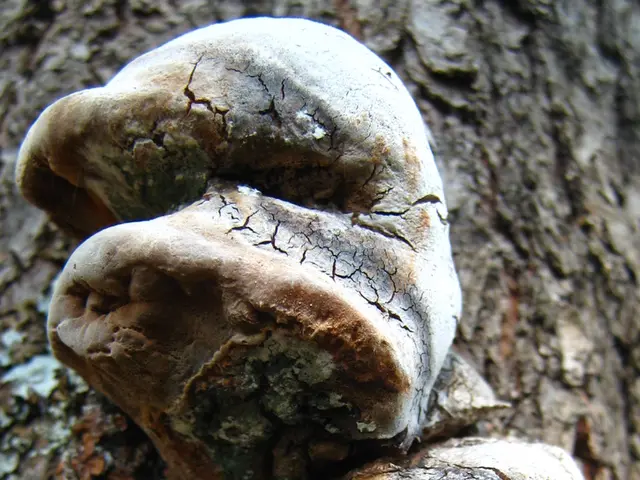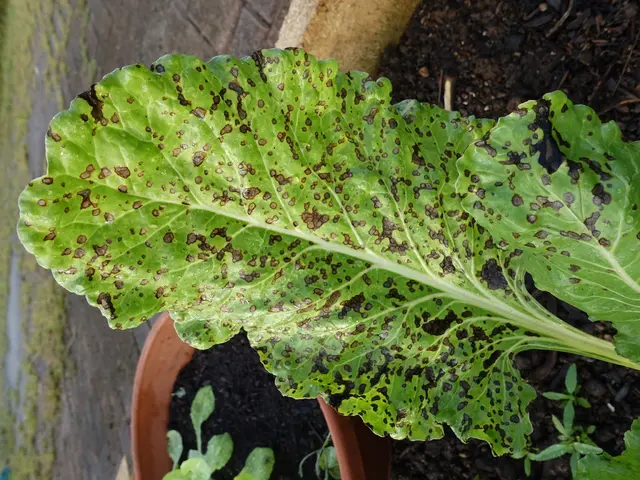Rejuvenation of Cardiac Aging Possible through Novel Hybrid Biomaterial
New Study Reveals Unexplored Aging Heart Secret
As we approach the twilight of our years, our bodies start to slow down, and our hearts are no exception. But a recent study published in the Journal of the American College of Cardiology could change everything we know about heart health.
The Strange World of the Extracellular Matrix
The researchers looked at a little-known part of cell biology: the extracellular matrix (ECM). This network of molecules and minerals, often referred to as the cell's "scaffolding," usually provides structure and protects cells. But in the heart, its role is far more intricate.
ECM: The Hidden Culprit in Heart Aging?
As we age, the ECM in the heart becomes stiffer and chemically altered, primarily due to changes in ECM components like collagen. This triggers a process called cardiac fibrosis, where excess connective tissue builds up, stiffening the heart muscle and altering its structure.
These changes degrade heart function, making it less efficient at pumping blood. And it's not just the stiffness that's harmful; altered biochemical signals in the ECM can also push aged heart cells toward dysfunctional states.
"Our study looks instead at the ECM and how changes in this environment affect heart aging," explains Jennifer Young, senior author of the study and assistant professor at the Mechanobiology Institute of the National University of Singapore.
DECIPHER: A Revolutionary Solution
To understand the role of the ECM in heart health, the team developed an innovative model called DECellularized In Situ Polyacrylamide Hydrogel-ECM hybrid (DECIPHER). This model, made using heart tissue from a rat and a lab-created gel with ECM-like properties, allowed the researchers to control cell signaling and tissue stiffness independently.
This allowed them to see how changes in cell signaling or tissue stiffness affected heart function, offering insights that weren't possible before.
Using DECIPHER, they found that "young" cell signaling outweighed the negative effects of the stiffer ECM, suggesting that changes in the biochemical environment around heart cells might be more crucial to heart aging than stiffness itself.
So, What Does All This Mean?
We spoke to Nishant Kalra, MD, an interventional cardiologist, and he had some intriguing insights. "Surface molecules (ligands) found in young heart tissue can prevent the activation of fibrosis-promoting cells, even when the tissue is as stiff as aged heart tissue, which points to new ways to target the extracellular environment to slow heart aging," he said.
Of course, human studies are needed to verify these exciting findings. In the meantime, there are many lifestyle changes you can make to support your heart as you age.
Tips for a Healthier Heart
Regular exercise, maintaining a healthy diet, quitting smoking, getting adequate sleep, and stress reduction are all evidence-based strategies for preventing heart aging.
Adopting a Mediterranean or DASH diet, exercises, meditating, or spending time in nature, adhering to 150 minutes of moderate-intensity or 75 minutes of vigorous-intensity aerobic activity per week, giving up smoking, aiming for 7-9 hours of quality sleep per night, managing weight, and finding healthy ways to manage stress can all improve heart health.
Limiting alcohol intake to below 14 units per week and giving your body a break from alcohol for at least one continuous 48-hour period each week is also recommended to reduce the risk of heart disease.
- With aging, the extracellular matrix (ECM) in the heart hardens and undergoes chemical alterations, primarily attributed to changes in ECM components like collagen.
- Cardiac fibrosis occurs due to these changes in the ECM, causing excess connective tissue to build up and stiffen the heart muscle.
- These adjustments degrade heart function, making it less efficient at pumping blood.
- The altered biochemical signals in the ECM can also move aged heart cells towards dysfunctional states.
- Jennifer Young, senior author of the study and assistant professor at the Mechanobiology Institute of the National University of Singapore, explains their study focuses on the ECM and its impact on heart aging.
- The team developed an innovative model called DECellularized In Situ Polyacrylamide Hydrogel-ECM hybrid (DECIPHER) to better understand the ECM's role in heart health.
- This combination model, created from heart tissue from a rat and lab-generated gel with ECM-like properties, enables independent control over cell signaling and tissue stiffness.
- The study suggests that changes in the biochemical environment around heart cells might be more vital to heart aging than stiffness itself.
- Nishant Kalra, MD, an interventional cardiologist, believes new approaches could target the extracellular environment to slow heart aging.
- Human studies are necessary to confirm these findings.
- Regular exercise, maintaining a healthy diet, quitting smoking, getting adequate sleep, and stress reduction are all evidence-based strategies for preventing heart aging.
- Adopting a Mediterranean or DASH diet, engaging in exercises, meditating, or spending time in nature can improve heart health.
- Following guidelines of 150 minutes of moderate-intensity or 75 minutes of vigorous-intensity aerobic activity per week can boost heart health.
- Giving up smoking, aiming for 7-9 hours of quality sleep per night, managing weight, and finding healthy ways to cope with stress can all contribute to better heart health.
- Limiting alcohol intake to below 14 units per week is recommended, along with giving the body a alcohol-free break for at least one continuous 48-hour period each week to reduce heart disease risk.
- The general health industry has a significant role in promoting senior wellness, inclusing therapies and treatments for addressing age-related medical conditions and chronic diseases.
- In the field of environmental science, the effects of climate change on cardiovascular health in seniors become a concern, particularly in the manufacturing sector and transportation.
- Men's health amid aging involves not only cardiovascular health but also prostate health, skin care, and mental well-being.
- Women's health goes beyond cardiovascular health, including the prevention and treatment of gynecological diseases, skin care, and maintaining bone density.
- The workplace-wellness movement provides companies with strategies to support their employees' physical and mental health, including health and wellness programs, fitness, and exercise initiatives.
- Cancer, as one of the leading causes of death in seniors, requires extensive research and development in the pharmaceutical industry, with a focus on finding more targeted therapies.
- In addition to physical health, seniors must prioritize their mental health by maintaining social connections, seeking support, and managing stress.
- Home-improvement projects, interior design, and outdoor living provide those with energy and mobility an opportunity to continue maintaining their home environments.
- The auto industry continues to innovate with electric and autonomous vehicles to address environmental concerns and improve senior driver safety.
- Leadership skills become valuable assets for entrepreneurs in ventures across a multitude of industries, such as retail, finance, automotive, real estate, and venture capital.
- Diversity and inclusion initiatives in the workplace are essential for creating environments that foster innovation, growth, and productivity.
- Wearables and smart home devices are becoming increasingly popular in the field of retirement living, facilitating a connected lifestyle and independent living for seniors.
- Cybersecurity becomes vital as technology penetrates all aspects of our daily lives, ensuring personal data remains secure and maintaining the integrity of smartphones, gadgets, and home devices.
- Lifestyle choices, budgeting, prudent investing, and debt management play significant roles in wealth management for seniors, helping them maintain a sense of financial security and independence.








